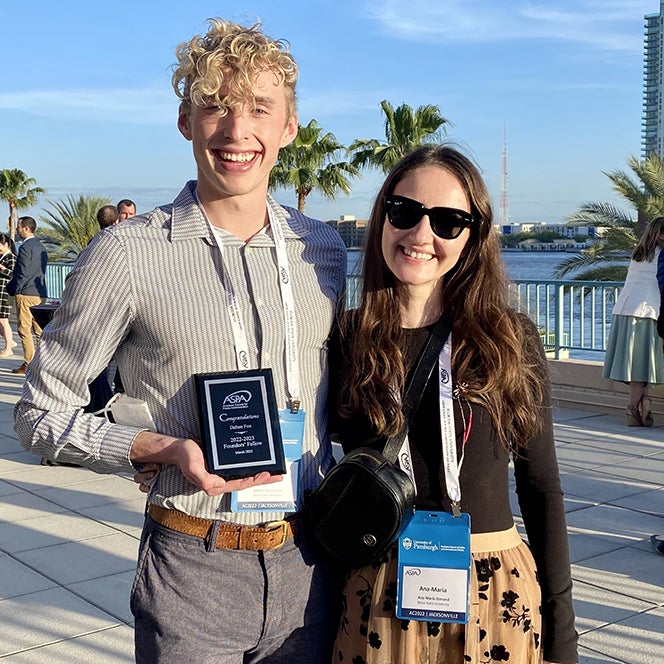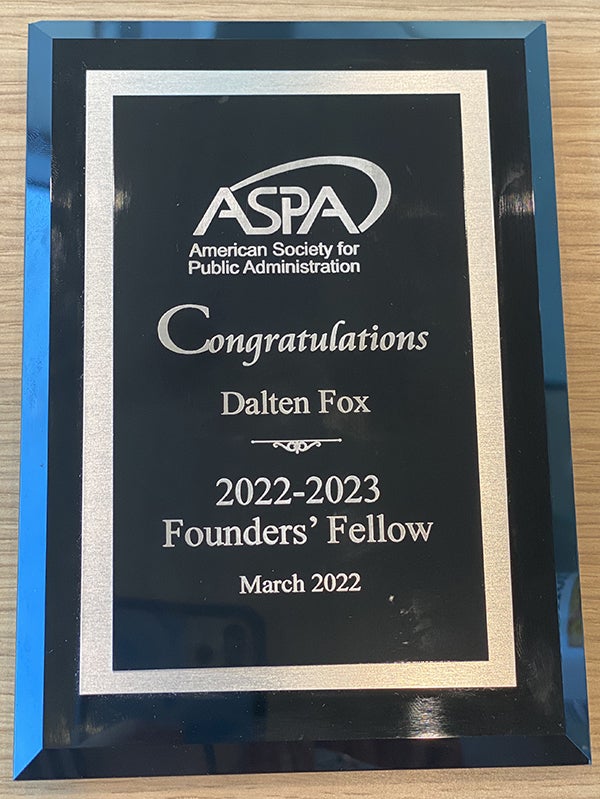
By Dalten Fox
As the first ever graduate student from Boise State, or any university in Idaho, to be selected for the American Society for Public Administration Founders’ Fellowship, I was beyond honored to travel to Jacksonville, Florida to represent Boise State, The School of Public Service and Idaho at the American Society for Public Administration Annual Conference. At the conference, I had the chance to present research I’ve conducted, with the help of Dr. Steve Utych, that demonstrates how important language is in communicating politicized ideas and concepts.
In brief, Dr. Utych and I ran a survey experiment which revealed that when a community and its governance is described as being “collectivist,” the vast majority of respondents from both major political parties feel that said community is a desirable place to live, that it seems well equipped to achieve community goals, and it’s citizens are likely happier than citizens living elsewhere. However, when the same town is described using terms like “socialism” or “communism,” concepts incredibly paralleled to collectivism, respondent favorability, especially amongst republican respondents, reduces dramatically.

This research provides early insight into best practices and new directions when talking about politicized concepts and when trying to spark bipartisan agreement. The words we choose to use have a direct impact on how the messages we try to convey are perceived. This insight is powerful information for work done in Idaho which sees a strong presence from both parties and is an exemplar for bipartisan work, as evidenced through the Owyhee Initiative in Owyhee County. Moreover, this work is valuable for Boise State as it begins to pioneer new ways to think about and study bipartisan collaboration, which we can see through the establishment of the Institute for Advancing American Values.